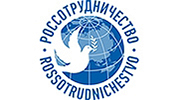In this special edition of Learning World, Euronews looks at the global demand to learn Russian and what opportunities are available to students.
More than 300 million people in the world speak Russian.The lingua franca in former Soviet republics, there are also big Russian-speaking communities in Europe and the United States.
 ADVERTISEMENT
ADVERTISEMENT
 ADVERTISEMENT
ADVERTISEMENT
While not always the easiest language to learn, it remains popular, with strong market demand from business, notably in the science and communication sectors.
At St. Petersburg State University more than 1500 foreign students come from all over the world to learn Russian. Some students learn the language simply out of love for Russian literature. Others, like Ted from Sweden, see it as a career opportunity.
“I think there are a lot of opportunities regarding Russia as a whole. I find it (the Russian language) very valuable. And I especially want to use it further down the line in my career,” he says.
Trenton, an American student studying global communications at the University of Utah is also studying Russian to help boost his job prospects.
“It’s a challenge, it really is. Russian is not an easy language to learn from an English speaker’s perspective. So I figured it was a fantastic opportunity to maybe get a leg in the job market.”
Students from more than 60 countries come to St. Petersburg State university. For those who don’t have that opportunity to study in Russia, but still want to improve their skills, there is a solution.
The Pushkin State Russian Language University in Moscow was the first institution to create methods for teaching Russian to foreign students. Taking that expertise, it now provides online distance learning courses.
Margarita Rusetskaya, from the Pushkin State Russian Language Institute says, “Our studies show that demand for personnel who can speak the Russian language in all spheres in the world today amounts to about 125 million people. Many people would like to come to Moscow to study at our Institute. But not everyone has this opportunity. That is why we created our platform PushkinOnline. It is the e-school for the Russian language: it is free and accessible to everyone."
According to various estimates, around 4 million Russian-speakers live in Germany.
Demand to learn the language is high. Some study for purely intellectual reasons and an appreciation for Russian culture, most however, are driven by pragmatic considerations.
Brigitte Dressler, from the Berlin International University of Applied Sciences, says there are plenty of opportunities to learn Russian inside the country: “The conditions for learning Russian in Germany are good. In many states Russian is one of the approved languages that can be taught in school, also here in Berlin. I work at a University and we want to show the students that the Russian language actually improves their career prospects.’’
At the end of November, a Russian Language Week was also held in Berlin. The important annual event brings together slavic experts and teachers of the Russian language from across Europe.
Eleonora Mitrofanova, Head of Rossotrudnichestvo, says demand to learn Russian is strong: "Our organisation is very much like Alliance Francaise or the Goethe Institute but for the Russian language of course. We have our offices in 81 countries across the world. And our mission is to teach the Russian language. There is a need for it and we try to cover it not only with our courses, but primarily with the training of local teachers and the supply of modern textbooks.”











